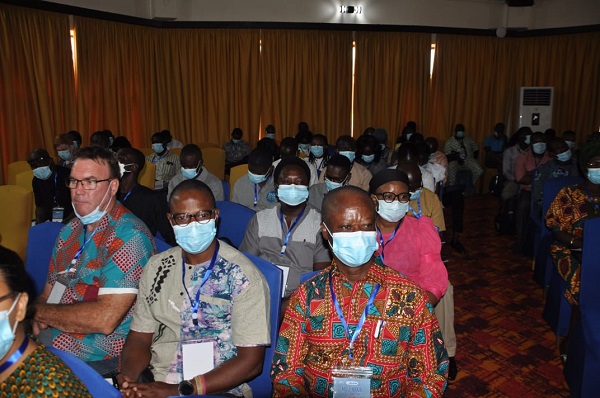The Mirror's Health , Lifestyle and Fashion

Eleven-year-old stuns at Mole XXXIII WASH Conference
She said the most important support Ghanaian children need from every adult, every parent, and every person in authority is that they should all refrain from bad sanitation practices and provide their families and their institutions with the needed sanitation facilities.
Advertisement
The annual Mole Conference focuses on Ghana’s commitment to WASH services towards achieving the 2030 Sustainable Development Goal Six.
It also seeks to create a common space for policy makers, practitioners and researchers to give account on the state of Ghana’s WASH delivery systems.
The theme for this year’s conference is Ghana’s commitment to WASH - Connecting systems to bridge service delivery gaps.
About 200 participants from civils society organisations, academia, the media, government officials, and representatives of the private sector are attending the five-day programme, organised by the Ghana Coalition of NGOs in the Water and Sanitation Sector. (CONIWAS).
In a solidarity message at the opening ceremony, Miss Gyimah observed that one major service delivery gap was how children had not adequately been involved in finding sustainable solutions to our sanitation challenges.
“We, therefore, encourage all stakeholders to support and expand the Children’s Sanitation Fair, the School Sanitation Solutions Challenge, and the Child Sanitation Diplomat Initiative,” she maintained.
Future generation
The Form One pupil of Dawhenya Methodist B Basic School explained that those clear innovations sought to raise a sanitation-conscious future generation.
For that reason, she urged stakeholders to adapt those concepts at the local level to involve more children.
“We also do not think that it is out of place to create a session for children in all subsequent Mole WASH Conferences; just a session so the children around the conference venue can make an impact,” she said to a standing ovation from the participants.
Gyimah, called for a modern toilet facility for her school, which, she said, was a cluster of various schools with over 4,000 pupils.
“We all share only an old and dilapidated toilet facility with less than 10 seats; a facility which has also been taken over by the community.
“This compels some of the children to defecate and urinate in unapproved places. “That’s the situation I currently face, and I cannot stand it,” she added.
SDG target
The Deputy Minister of Sanitation and Water Resources, Issaka Chinna Amidu, who opened the conference, said Ghana required a minimum of USD two billion in capital investments to meet the SDG target on Sanitation.
That, he said, would include the construction of household toilet facilities, sanitation services, including emptying, and treatment of waste matter, and health care and sanitation facilities for schools, among other projects.
Meanwhile, Mr Amidu said sanitation projects worth USD 500 million had been implemented in Ghana since 2010.
About 60 per cent of the investment focused mainly on non-sewered sanitation and condominium sewerage, and it would take additional funding to bridge the existing gap in safely managed sanitation, he added.
The deputy minister said Ghana had made remarkable progress in the delivery of safe drinking water and was on track to achieving basic access to the SDG targets.





